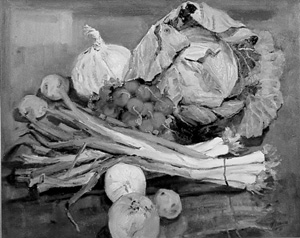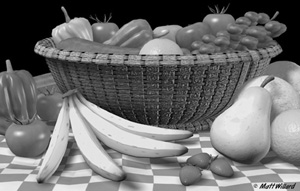Replace meat with beans
Prevent human blood shed, start at the dinner table :
by Chula Weerakoon Watugala
Vegetarianism is generally considered to be the avoidance of eating
meat. But actually, there are many types of vegetarians. The most pure
form, vegan, is when one avoids all foods of animal origin.
Then there is the ovo-vegetarian; who excludes all animal flesh and
milk but consumes eggs, and the lacto-vegetarian; who excludes all
animal flesh and eggs but consumes milk. There are also other lesser
forms that avoid some kinds of meat.
 People become vegetarians for all sorts of reasons, but mainly they
do so for health, ecological, and religious concerns, a dislike for
meat, compassion for animals and belief in non-violence. People become vegetarians for all sorts of reasons, but mainly they
do so for health, ecological, and religious concerns, a dislike for
meat, compassion for animals and belief in non-violence.
Although some people consider vegetarianism a trendy new fad, in
reality it has a long history. Buddhism, Brahmanism and Jainism, all
long-established religions, advocated abstention from flesh foods, as
did such early philosophers and thinkers as Pythagoras, Plato and
Socrates.
I have been a lacto-vegetarian since the day I was born. Being a
vegetarian is one of the traits that I most admire in myself. Most
plainly, I became a vegetarian because I belong to a Buddhist family.
Lord Buddha preached to love all beings, advocated non-violence, and
disapproved of meat-eating, and thus my whole family is vegetarians.
But being a Buddhist does not mean you are required to be a
vegetarian, although the Buddha did preach it. It is a matter of choice.
Although I am privileged to be a Buddhist, I would like to think that I
would have turned vegetarian even if I wasn't born one.
Since my childhood, most people considered me unlucky because I had
no chance of eating the delicious and scrumptious meat that they could
eat. Once, in junior school, one of my classmates put a piece of chicken
in front of me during recess, thinking that I would not be able to
resist eating it.
He was surprised when I showed no signs of interest and laughed at
his futile attempt. I pitied People like him, because they did not know
what they were actually doing. People around the world yearn for world
peace and harmony among human beings, but they consider the chicken that
they had for lunch as unworthy of any respect as a living entity.
Humans can go for years or decades without war; but animals face
suffering and death every day. For most people, chicken is made to be
eaten. For them, animals don't deserve to live. Animals do not feel
basic emotions such as pain, fear, love or happiness we humans feel.
Obviously they don't value an animal's life.
 My views might seem preposterous to some, but I would imagine that if
anyone had a chance to visit an animal slaughterhouse they also will
understand my reasoning. People mercilessly kill animals that are
trapped in cramped cages barely big enough to contain their bodies. My views might seem preposterous to some, but I would imagine that if
anyone had a chance to visit an animal slaughterhouse they also will
understand my reasoning. People mercilessly kill animals that are
trapped in cramped cages barely big enough to contain their bodies.
These frantic beings panic when they see their fate through the
deaths of their own kind. The pain of creatures on the road to our table
is not some fanciful concoction; it is excruciatingly real. For example,
live shrimp and crab meet their end by being cooked in water. It is not
unlike being sent to a boiling hell.
Their desperate but doomed efforts to crawl or jump out betray the
unbearable pain they experience. Finally they give their life in sorrow
as they turn bright red. Can anyone say that animals do not value their
life after that? For meat eaters, every banquet means the death of
hundreds and thousands of animals.
Is this any different from human war? A British promoter of
vegetarianism named Dr. Walsh once said that "to prevent human
bloodshed, one must start at the dinner table."
An article about Vegetarianism I read recently tells a story that
will convince anyone that all living creatures are not without feeling
and intelligence. Once, when a scholar named Chou Yu was cooking some
eel to eat, he noticed one of the eels bending its body such that its
head and tail were still in the boiling point liquid, but its body
arched upward above the soup.
It did not fall completely until it died. Chou Yu found the
occurrence a strange one, pulled out the eel, and cut it open. He found
thousands of eggs inside.
The eel had arched its belly out of the hot soup to protect its
offspring. He cried at the sight, sighed with emotion, and swore never
to eat eel. Of course, animals aren't as intelligent as human beings,
but does that warrant wantonly breeding them just for the sake of their
meat? All beings love their life. Don't they deserve to live?
The truth is, humans evolved to be omnivorous because they had to
survive - not because they liked the taste of meat. The Neanderthal
didn't hunt animals because they were tasty, but because he had to
survive. It was a case of kill or be killed. So naturally, we evolved
into the humans we are today. But this is where we hit a small snag - do
we need to eat animals to survive now? Do we get hunted if we do not eat
meat now?
Most people believe that meat is necessary for a healthy diet. But
that has been proven wrong by medical research and living proof alike.
The American Dietetic Association has confirmed that a vegetarian diet
meets all known nutritional needs.
Being a vegetarian does not deter child growth either. Vegetarian
diets can meet all nitrogen needs and amino acid requirements for
growth.
According to the Encyclopedia Britannica, our bodies contain uric
acid and other toxic waste products which turn up in our blood and body
tissues. Compared to the 65% impure moisture content of beef, protein
obtained from nuts, beans and legumes is markedly purer.
Vegetarian food is indeed much cleaner than meat, and it also retains
its freshness better than meat. According to the World Health
Organisation, a vegetarian on a well planned diet has no trouble
exceeding the daily protein requirement.
So it is quite clear that the myths about the risks of being a
vegetarian are completely unfounded. On the other hand, eating meat can
lead to serious health issues. Fast-food chains all around the world
promote greasy foods that are mostly meat-oriented, and adversely affect
our health.
Americans are among the world's most obese people as a result of
this. Vegetarians can easily maintain a very healthy diet that can keep
them slim and fit. Eating meat also carries the risk of many diseases -
most commonly the Mad-Cow disease that spread throughout Asia, Europe
and the United States and more recently a new form of influenza called
bird-flu that left millions of chicken dead when the government of China
slaughtered them as a precaution.
Vegetarians, on the other hand, have benefits for maintaining their
healthy diets. The International Vegetarian Union states that many
studies have shown that vegetarians have a lower risk of obesity, heart
disease, high blood pressure, diabetes and some forms of cancer.
The final argument most desperate people bring about is that meat is
delicious. They think that a vegetarian diet is made up of raw beans and
carrots. On the contrary, there are millions of delectable vegetarian
recipes from every region of the world.
Although I am more used to vegetarian curries served by my mother,
various recipes are readily available on the web. The Indian vegetarian
buriyani, the green pea palav and the Mysore pagu are just some of the
more mouth-watering dishes I have tasted.
Being a vegetarian is nothing new, and many renowned people are known
to have advocated vegetarianism. Among them are Leonardo Da Vinci, Leo
Tolstoy, George Bernard Shaw, Mahatma Gandhi and Albert Einstein.
In fact, Albert Einstein, who was named Time magazine's Person of the
Century, stated that "nothing will benefit human health and increase the
chances for survival of life on Earth as much as the evolution to a
vegetarian diet.
The vegetarian manner of living, by its purely physical effect on the
human temperament, would most beneficially influence the lot of
mankind." He went on to say that "it always seems to me that man was not
born to be a carnivore." Pythagoras, widely regarded as the first great
mathematician, believed that "for as long as men massacre animals, they
will kill each other.
Indeed, he who sows the seeds of murder and pain cannot reap joy and
love." Leonardo Da Vinci thought that "the time will come when people
will look upon the murder of animals as they now look upon the murder of
human beings." Renowned Russian writer and philosopher Leo Tolstoy
echoed my sentiments in his conversation with a retired soldier who was
also a butcher.
The butcher was surprised by Tolstoy's assertion that it was pity to
kill early on, but afterwards he agrees: "especially when they are
quiet, tame cattle. They come, poor things, trusting you. It is very
pitiful."
Leo Tolstoy commented on his experience as follows: "This is
dreadful! Not the suffering and death of the animals, but that man
suppresses in himself unnecessarily, the highest spiritual capacity -
that of sympathy and pity toward living creatures like himself - and by
violating his own feelings, becomes cruel.
And how deeply seated in the human heart is the injunction not to
take life! But by the assertion that God ordained the slaughter of
animals, and above all as a result of habit, people entirely lose their
natural feelings."
Most people and organisations try to save animals only when they are
becoming extinct or endangered, but as human beings we should be
responsible for the welfare of the living beings we share our planet
with.
So next time you eat that chunky piece of chicken, think of those
poor animals who are given steroids just for some extra meat and who
suffer endlessly just to satisfy our heartless appetites.
|
